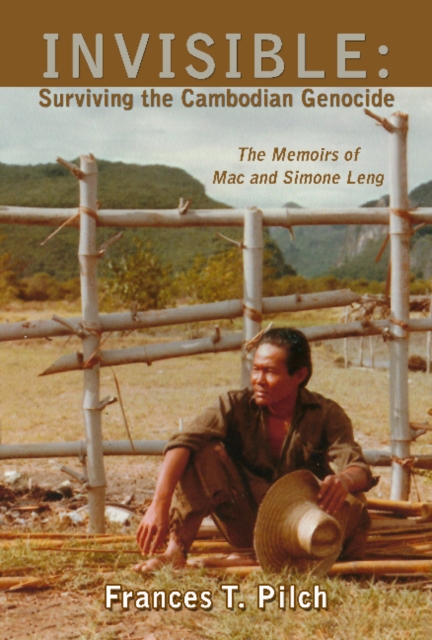CITESTE MAI MULT
Detalii
Descriere RO
"The challenge was not just to survive, but to survive without losing our humanity." Mac and Simone Leng
The Cambodian Genocide claimed the lives of an estimated two million people - more than one-fourth of the total Cambodian population. Under the brutal regime of the Khmer Rouge, led by Pol Pot, cities were evacuated and the population dispersed and forced into labor camps, where scores died of starvation, malnutrition, and disease. Pol Pot targeted for extermination certain minorities, the educated, and all those who had any connection with the former regime. Cambodia was to return to the "Year Zero," a pre-history - where no hint of Western influence would exist. Because Mac Leng was a former school principal and an army intelligence officer under the Lon Nol regime, he had a double target on his back. Mac and Simone Leng survived almost unendurable conditions for three years, eight months, and twenty days. This is their heartrending story of resilience, courage, and the power of the human spirit in the face of unimaginable terror.
INVISIBLE: Surviving the Cambodian Genocide is a Cambodian couple's moving, personal, and straightforward story of living through one of the major disasters of the twentieth century. Millions of the Cambodian survivors of the 1975-1979 genocide have their own heart-rending accounts of what happened to them, packed like this book with dramatic, tragic events, individually experienced but in many respects similar because of the nature, ambition, and power of the Pol Pot regime. Surprisingly few of their accounts have appeared in English. This is a valuable addition to what we know.
Ben Kiernan, author of How Pol Pot Came to Power and The Pol Pot Regime: Race, Power and Genocide in Cambodia under the Khmer Rouge, 1975-1979, A. Whitney Griswold Professor of History, Professor of International and Area Studies, Founding Director of the Genocide Studies Program (1994-2015), Yale UniversityA family swept up in the Cambodian genocide describes their experiences in a matter-of-fact tone that only heightens the sense of horror. An indispensable tale of human depravity and human endurance. Ambassador Roger N. Harrison, Former U.S. Ambassador to Jordan THE IMPORTANCE OF
INVISIBLE
INVISIBLE
is a powerful story of survival against overwhelming odds during the nightmare years of the Cambodian Genocide. Very few first-person accounts of survival of the Cambodian Genocide exist, as most educated Cambodians were exterminated. The story of the survivors is framed in an account of the context of the Cambodian Genocide - how the murderous regime of Pol Pot came to power. Horrifying details of actual conditions during the Genocide are presented. Simultaneously, the book presents an uplifting message of the importance of humanity during even the most perilous of times. Love for family is a strong theme. The book fills a gap in the literature on the Cambodian Genocide, which is not well understood by most. The book is appropriate as required reading in any university course on genocide and human rights or in high school curricula. The book is suspenseful as the reader follows the journey of the Leng family from the killing fields to freedom. (Mac Leng worked on the film, The Killing Fields, as a consultant after he moved to the United States.) The book has implicit commentary on the important role of immigrants in the United States and the follies of U.S. foreign policy during the Viet Nam War era.
EdituraRobert D. Reed Publishers
Dimensiuni153 x 227 x 15
Data Publicarii21/07/2017
Format
Necartonata
Numar pagini156
Aceasta este o carte in limba engleza. Descrierea cartii (tradusa din engleza cu Google Translate) este in limba romana din motive legale.
„Provocarea nu a fost doar sa supravietuim, ci sa supravietuim fara sa ne pierdem umanitatea”. Mac si Simone Leng: genocidul cambodgian a luat viata a aproximativ doua milioane de oameni - mai mult de o patrime din populatia cambodgiana totala. Sub regimul brutal al Khmerilor Rosii, condus de Pol Pot, orasele au fost evacuate, iar populatia a fost dispersata si fortata in lagare de munca, unde zeci au murit de foame, malnutritie si boli.

